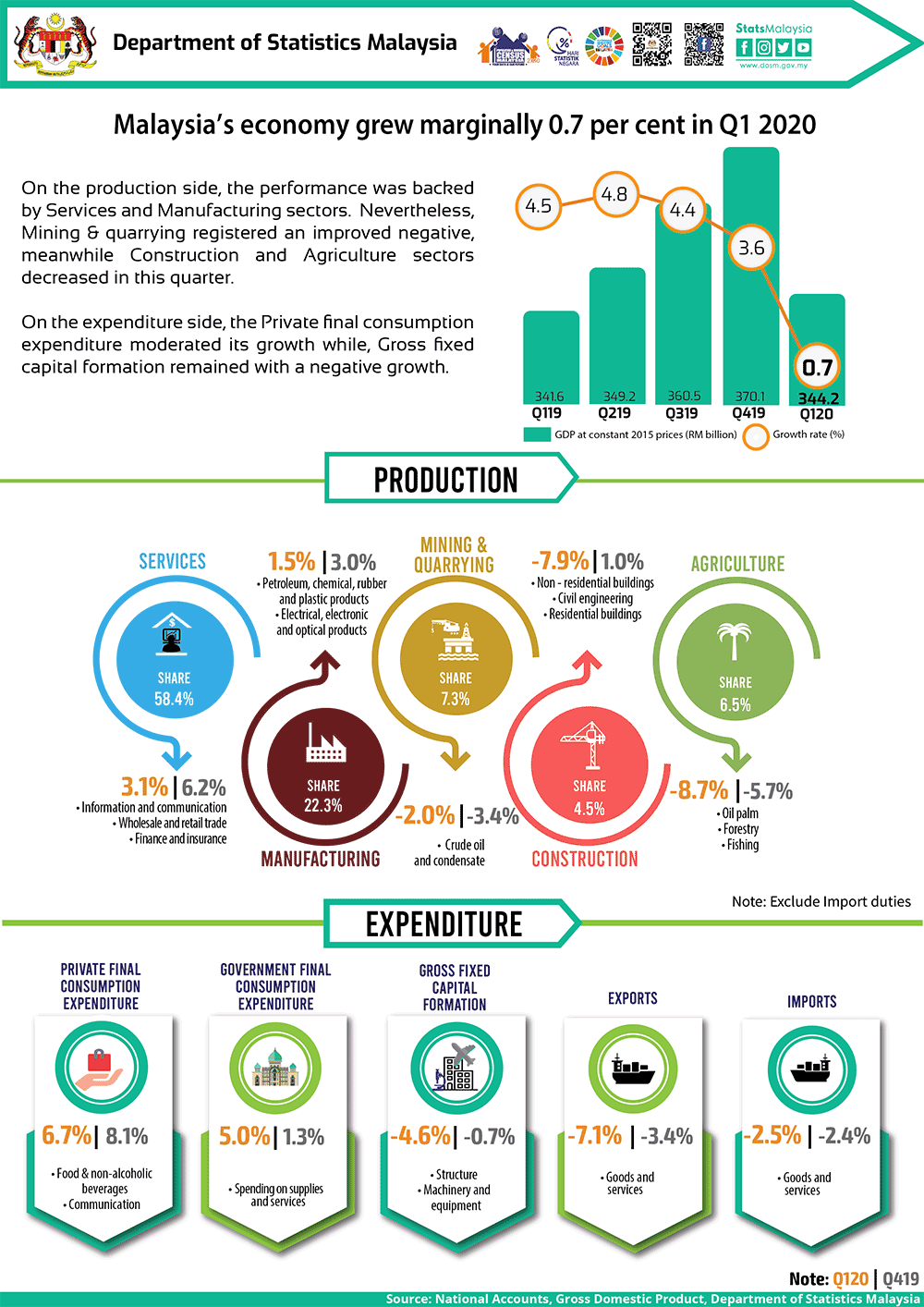
Malaysia's economy recorded growth in the first quarter (Q1), confounding expectations for a contraction even as the coronavirus pandemic took a toll on exports and domestic demand.
Gross domestic product grew 0.7 percent in the first quarter from a year earlier, better than the 1.5 percent decline forecast in a Reuters poll, though still below the 3.6 percent growth rate in the fourth quarter.
Bank Negara Malaysia (BNM) said the coronavirus outbreak had affected growth across major and regional economies, many of which imposed lockdowns that crimped economic activity and demand, including in Malaysia.
"The ongoing pandemic has created an unprecedented economic crisis," central bank Governor Nor Shamsiah Mohd Yunus told a virtual media conference.
Southeast Asia's third-largest economy has taken a blow from sharp downturns in tourism and a drop in demand for its commodities such as palm oil, crude oil and natural gas. That has been made worse by weak domestic activity due to curbs on movement and businesses from the Covid-19 crisis.
BNM took aggressive preemptive moves earlier this year, slashing its overnight policy rate by 100 basis points to a historic low of 2 percent and loosened liquidity rules to support the banking system.
Nor Shamsiah said the central bank was unable to provide a forecast for full-year 2020 growth due to the uncertainties tied to the pandemic.
The central bank in a statement predicted the economy would contract in the second quarter but economic activity was expected to gradually improve in the second half.
The central bank had in April forecast the economy to either shrink by as much as 2 percent or grow marginally by 0.5 percent this year.
Malaysia, which until mid-April had the highest number of reported coronavirus cases in Southeast Asia, had imposed strict curbs on movement and businesses over six weeks. The government has since relaxed some of the restrictions in a bid to jumpstart the economy.
Exports fell 4.7 percent in March, when the curbs were introduced, sharply down from the 11.8 percent expansion from a month earlier.
Factory output also took a hit in March when it contracted 4.9 percent, its sharpest decline in nearly a decade.
Headline inflation continued its downward trend this year, entering negative territory in March as it fell 0.2 percent on cheaper pump prices.
- Reuters




No comments:
Post a Comment
Note: Only a member of this blog may post a comment.